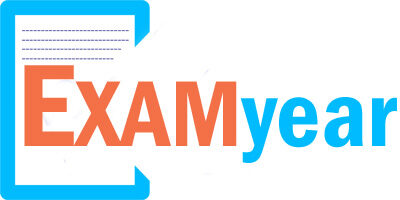Environmental Studies Selected Question
Download all Environmental Studies Selected Question Papers here. We are providing Environment Science Selected Question Papers. We have given the solutions for EVS solved Selected Question Papers to make your preparation efficient.

Click here to Download the Environment Science Selected Question Papers from the attached pdfs. EVS Selected Question Papers attached in the PDF Format so the aspirants can download quickly. Along with these Environmental Studies Selected Question papers, we have attached Environment Science Syllabus and Exam Pattern.
Environmental Studies Selected Question Papers are available. Applicants can download EVS Selected Question Papers. Also, get the Study material, Preparation tips in addition to the EVS Selected Question Papers for posts. On our page, we provide Environmental Studies Selected Question Papers for the sake of aspirants.
Selected Question on Environmental Studies
1. Which of the following microorganisms leach metals out of rock ores and can accumulate silver ?
(A) Pseudomonas aeruginosa
(B) Thiobacillus sp
(C) Pseudomonas putida
(D) Zooglota ramigera
2. Newly 2% of the global fresh water is available in :
(A) Lakes
(B) Rivers
(C) Underground acquifiers
(D) Permanent snow caps/glaciers
3. Strom surges are devastating features associated with :
(A) Western Disturbances
(B) Tropical cyclones
(C) Claud bursts
(D) Avalanches
4. Floods and landslides are common in the Western Ghats during the months of :
(A) March-April
(B) June-September
(C) December-January
(D) January to May
5. Which of the following is not a conventional source of energy ?
(A) Fossil fuel
(B) Wood and Charcoal
(C) Photo-voltaic
(D) Animal power
6. Active solar energy systems can capture :
(A) Direct solar energy
(B) Indirect solar energy
(C) Direct thermal energy
(D) Indirect thermal energy
7. In the current scenario, advanced anaerobic digestors can produce power generation capacities in the range :
(A) 2 kW—10 kW
(B) 2 MW—10 MW
(C) 20 MW—100 MW
(D) 1 kW—2 kW
8. Correct order of global warming potential of CQ2, N2O and CH4 is :
(A) CO2 > N2O > CH4
(B) CO2 > CH4 > N2O
(C) CH4 > N2O > CO2
(D) N2O > CH4 > CO2
9. The share of thermal power plants in the power production in India in percentage terms is :
(A) 70%
(B) 60%
(C) 85%
(D) 95%
10. An air parcel is displaced but after sometime it returns back to its original height. This happens when the atmosphere is :
(A) Unstable
(B) Stable
(C) Neutral
(D) Highly unstable
11. Metals for which National Ambient Air Quality Standards (NAAQS) have been defined by the CPCB are :
(A) Pb, Cr, Ni
(B) Pb, Ni, Zn
(C) Pb, Zn, Cu
(D) Pb, As, Ni
12. Thermal pollution in water bodies occurs due to :
(A) Discharge of run-off water
(B) Discharge of heat from power plants
(C) Release of treated effluent
(D) Mixing of sewage
13. Which of the following series is correct, when types of soil particles are in the increasing order of their size ?
(A) Clay -> Sand -> Silt
(B) Clay -> Silt -> Sand
(C) Sand -> Silt -> Clay
(D) Silt -> Sand -> Clay
14. Which of the following types of nuclear reactors uses graphite as a moderator ?
(A) Pressurized water reactor
(B) Boiling water reactor
(C) Fast breeder reactor
(D) High temperature gas cooled reactor
15. The project characteristics and baseline information is brought together in EFA for :
(A) Impact Identification
(B) Impact Assessment
(C) Impact Mitigation
(D) Impact Indication
16. What is the process for evaluation of need of EFA for developmental activities ?
(A) Scoping
(B) Setting
(C) Screening
(D) Auditing
17. The exercise of Environmental Audit for the industries is conducted :
(A) Monthly
(B) Annually
(C) Bimonthly
(D) Six monthly
18. Fly ash from a thermal power plant is useful for :
(A) Brick-making, Agriculture, Road construction
(B) Road construction, Cement manufacture, Cellulose industry
(C) Brick-making, Road construction, Fiber industry
(D) Cement manufacture, Road construction, Cosmetic industry
19. A 500 MW thermal power plant consuming 8000 tons of Indian coal, would release approx how many metric tons of ash in a day ?
(A) 500
(B) 1500
(C) 2500
(D) 3500
20. All the agricultural products are labelled with which of the following to indicate them as environment friendly product :
(A) ISI mark
(B) ISO mark
(C) Eco mark
(D) Red mark
More Questions on Environmental Science
21. The workers, if injured during their work at workplace have right to claim for the compensation under the provision in :
(A) Public Liability Insurance Act, 1991 and Rules 1991
(B) The Environmental (Protection) Act, 1986
(C) The Wildlife (Protection) Act, 1972
(D) EIA, 1994
22. Efforts for protecting the ozone layer at the international level fall under the domain of :
(A) Montreal Protocol
(B) Cartagena Protocol
(C) Dunkal Draft
(D) CRZ
23. World’s biggest industrial accident that took place in December, 1984 at Bhopal, resulted in release and spread of :
(A) Bromine
(B) Fluorine
(C) Methyl iso-cyanate
(D) Benzene
24. Which of the following is not a physical treatment of hazardous waste :
(A) Screening and Sedimentation
(B) Neutralization and Precipitation
(C) Flotation and Filtration
(D) Centrifugation
25. If the sample size is small, which method of sampling is more appropriate ?
(A) Random
(B) Purposive
(C) Stratified
(D) Census
26. The geometric mean of the numbers 4,6 and 9 is:
(A) 9.5
(B) 6.0
(C) 4.75
(D) 1.95
27. Johannesburg Earth Summit on ‘Sustainable Development’ was held in the year :
(A) 2002
(B) 2001
(C) 1972
(D) 1982
28. In drinking water, the contamination by which of the following causes the mottling of teeth and skeletal deformities :
(A) Fluoride
(B) Chlorine
(C) Zine
(D) Boron
29. Flyash disposal is carried out through :
(A) Landfills
(B) Ash ponds
(C) Air furnace
(D) Trash containers
30. Restoration of wasteland is effective in the long run by covering it with :
(A) Gravel
(B) Plastic sheets
(C) Live greenery
(D) Cement
31. A hole is deemed to have been created in ozone layer when its concentration in statosphere falls below :
(A) 300 Dobson
(B) 200 Dobson
(C) 400 Dobson
(D) 500 Dobson
32. Which one of the following is not a greenhouse gas ?
(A) CH4
(B) CO2
(C) O3
(D) N2
33. First International Convention (HN) on Human Environment was held in :
(A) March 1968
(B) March 1970
(C) June 1970
(D) June 1972
34. More than 97% of water on the earth is found in the oceans. The second largest compartment in the global hydrolysic cycle is the ice at the poles and in glaciers. The rest of the earth’s water is mostly in the :
(A) Rivers
(B) Lakes
(C) Atmosphere
(D) Groundwater
35. In the atmosphere an adiabatic process is one in which :
(A) dT = 0
(B) dp = 0
(C) dh = 0
(D) dp = 0
36. The most abundant and most usednoble gas refers to :
(A) Argon
(B) Neon
(C) Oxygen
(D) Nitrogen
37. The principle on matter is neither created nor destroyed but simply changes from one form to another is known as :
(A) Law of conservation of matter
(B) Law of conversion of matter
(C) Law of thermodynamics
(D) Law of conservation of energy
38. Region within ~ 80 km of the earth’s surface where there is chemical homogeneity, is :
(A) Homosphere
(B) Heterosphere
(C) Tratosphere
(D) Mesosphere
39. Cobalt sulphate solution shows an absorbance of 0.3, how much will be its percentage transmittance ?
(A) 10
(B) 20
(C) 50
(D) 40
40. The gas which is readily adsorbed by activated charcoal is :
(A) N2
(B) O2
(C) H2
(D) SO2
41. Which of the following are independently capable of utilising atmospheric nitrogen as their nutrient source ?
(A) Plants
(B) Animals
(C) Birds
(D) Microorganisms
42. Hollow cathode lamp is used in :
(A) Gas chromatograph
(B) Microscope
(C) Atomic absorption spectrometer
(D) Detector of HPLC
43. Which of the following is a critical organ for radioisotope of iodine ?
(A) Kidney
(B) Lung
(C) Thyroid
(D) Pancreas
44. Formation of smog does NOT depend on :
(A) Sunlight
(B) NO2 levels
(C) Wind speed
(D) GHG levels
45. Which one of the following is responsible for acid rain formation ?
(A) N2O and SO2
(B) CO2 and NO2
(C) NO2 and SO2
(D) NO2 and CH4
46. Relatively higher pH of rain water is noticed mainly due to :
(A) high sea salt content
(B) higher interference of CaCO3 rich dust
(C) Low sea salt content
(D) Low intensity of rainfall
47. The relationship between two organisms in which one is benefitted and other harmed is ……………..:
(A) Parasitism
(B) Symbiosis
(C) Commensalism
(D) Mutualism
48. A trophic level in an ecosystem refers to ………………
(A) Area in the tropics
(B) An organism’s position in a food chain
(C) An organism’s position in phylogeny
(D) An organism’s position in a ontogeny
49. In an aquatic ecosystem phytoplankton can be considered as
(A) Consumers
(B) Producers
(C) Saprophytic organisms
(D) Macro consumers
50. In ecosystem maintains a state of stable through a balance between all associated components is known as:
(A) Allelopathy
(B) Homeostatis
(C) Acetolysis
(D) Polymorphism

